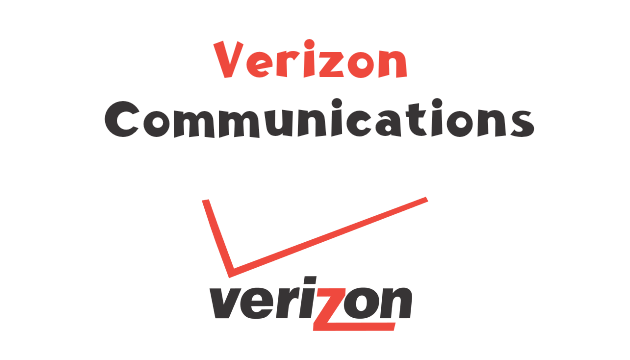Talking about the telecommunications industry in the United States, one name stands out prominently: Verizon Communications.
This telecommunications giant has been a household name for years, providing a wide range of services and playing a crucial role in connecting people across the nation. In this comprehensive article, we will explore few details about it and answer a couple of questions related to it.
What is Verizon?
Verizon Communications, often simply referred to as Verizon, is one of the largest and most prominent telecommunications companies in the United States. Established in 1983 as Bell Atlantic Corporation, the company underwent several mergers and acquisitions to become the Verizon we know today. Verizon is headquartered in New York City and operates as a publicly traded company under the ticker symbol VZ on the New York Stock Exchange
What Verizon Means?
The name "Verizon" is a portmanteau of two words: "veritas" and "horizon." "Veritas" is the Latin word for truth, and "horizon" signifies the future and looking ahead. This name was chosen to represent the company's commitment to providing reliable and forward-looking telecommunications services.
How Much Is Verizon Worth?
Verizon Communications had a market capitalization of over $220 billion. However, it's essential to note that the market capitalization of a publicly traded company can fluctuate over time due to changes in stock prices and other market factors. For the most up-to-date information on Verizon's market worth, it is advisable to consult financial news sources or stock market websites.
What Does Verizon Do?
Verizon is a diverse telecommunications company that offers a wide range of services, including:
- Wireless Services
- Wireline Services
- Enterprise Solutions
- Media and Entertainment
In recent years, Verizon has ventured into the media and entertainment sector. Through acquisitions like AOL and Yahoo, Verizon Media has become a digital media conglomerate that operates brands such as Yahoo, AOL, TechCrunch, and Engadget. This division offers content, advertising, and media services.
- 5G Technology
Verizon Wireless, a subsidiary of Verizon Communications, is a major player in the wireless industry. It provides cellular phone services, data plans, and mobile devices to consumers and businesses. With an extensive 4G and 5G network, Verizon offers high-speed connectivity across the country.
Verizon's wireline services encompass various offerings, such as landline telephone, internet, and television services. The company provides high-speed internet connections, landline phone services, and TV packages to both residential and business customers.
Verizon Business is the division responsible for offering enterprise-level solutions. It provides services like cloud computing, cybersecurity, IoT (Internet of Things) solutions, and communication and collaboration tools to businesses of all sizes. Verizon Business caters to the evolving needs of the corporate world.
Verizon is at the forefront of 5G technology deployment in the United States. It has invested heavily in expanding its 5G network, providing faster data speeds and enabling new possibilities in areas like IoT, augmented reality, and smart cities.
A Brief History of Verizon
To understand the company better, let's delve into its history:
- Formation of Bell Atlantic
Verizon's roots can be traced back to the Bell Atlantic Corporation, which was established in 1983. Bell Atlantic was one of the seven original Regional Bell Operating Companies (RBOCs) formed as a result of the divestiture of the Bell System, a conglomerate of telephone companies, in 1984.
- Mergers and Acquisitions
- Wireless Expansion
- 5G Leadership
- Media Ventures
Bell Atlantic underwent a series of mergers and acquisitions that transformed it into Verizon. One of the most significant mergers occurred in 1997 when Bell Atlantic merged with GTE Corporation, a major telecommunications company. This merger created Verizon Communications, which began operating under the Verizon name.
Verizon's wireless division, Verizon Wireless, became a major focus in the late 1990s and early 2000s. The company invested heavily in building a robust wireless network, which eventually became one of the largest and most reliable in the United States.
In recent years, Verizon has positioned itself as a leader in the deployment of 5G technology. It has rolled out 5G networks in numerous cities, offering faster data speeds and supporting various applications, from autonomous vehicles to augmented reality.
Verizon's foray into media and digital content started with the acquisition of AOL in 2015, followed by the purchase of Yahoo's core internet assets in 2017.
These acquisitions were part of Verizon's strategy to diversify its revenue streams and expand into the digital media and advertising space. The resulting entity, known as Verizon Media, encompasses various digital brands and services.
Here is the introductory video for Verizone:
Verizon's Role in the Telecommunications Industry
Verizon Communications plays a pivotal role in the US telecommunications industry, serving as one of the major players in the market.
It competes with other telecommunications giants like AT T and T-Mobile in providing wireless, internet, and TV services to consumers.
Additionally, Verizon's expansion into enterprise solutions and its commitment to 5G technology have made it a key player in supporting business innovation and connectivity.

